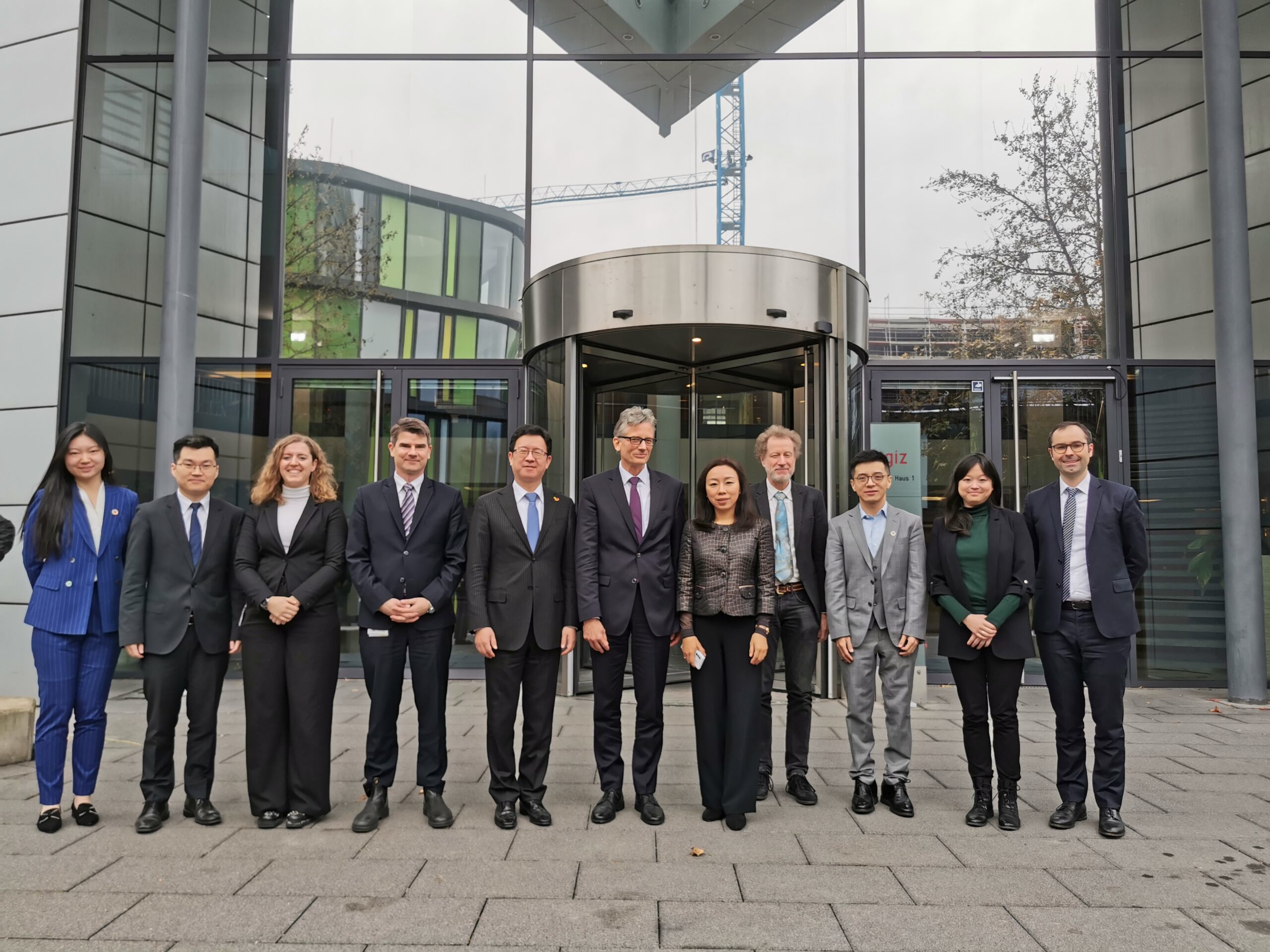On January 14 2020, the “International Infrastructure Third-Party Market Cooperation Seminar” was held in Beijing by the China International Contractors Association (CHINCA) in partnership with GIZ and the Sino-German Center for Sustainable Development (CSD).
Mr. Thorsten Giehler, Country Director of GIZ China, attended the seminar and gave opening remarks, following the Chairman of CHINCA, the Deputy Director General of the Department of Outward Investment and Economic Cooperation of China’s Ministry of Commerce, and the Deputy Director General of the Department of Utilization of Foreign Capital and Foreign Investment of China’s National Development and Reform Commission (NDRC). In his speech, Mr. Giehler pointed at opportunities to combine third market cooperation of enterprises with development cooperation approaches. The CSD looks for these interfaces and facilitates utilization of synergies between governmental and enterprise cooperation to contribute to achievement of the sustainable development goals.

As a basis for discussion during the seminar, CHINCA launched a Report on Third-Party Market Cooperation of Chinese International Contractors, which was developed based on 64 project cases provided by CHINCA member companies, of which China-European cooperation projects account for half. The report illustrates the relevance of third market cooperation for improving sustainable industrial, infrastructure and livelihood development in host countries, analyzes the status quo and current challenges. It suggests all stakeholders to work together to further promote cooperation, emphasizing high-quality, sustainable infrastructure as critical driver of development.
Representatives from government (embassies of the United Kingdom and Australia), financial institutions (KfW Development Bank, European Bank for Reconstruction and Development (EBRD), Chinese companies (Power China, China Road and Bridge Corporation), and companies from other countries (Arup, AECOM) shared their views, experience and lessons learnt in third-party market cooperation with the audience.

The seminar highlighted business cases of third market cooperation and the rationale why Chinese and foreign companies decide to work together in third countries based on comparative advantages. It showed also different ways of supporting third market cooperation from government side. China has signed already 14 inter-governmental agreements with industrialized countries such as France, Italy, Japan, and the United Kingdom. In general, those agreements shall, based on market principles, provide a political cooperation framework and a platform for exchange. Still, the concrete working mechanisms and instruments vary considerably. In several agreements CHINCA is named as a relevant platform of third market cooperation with the mandate to create business opportunities.
The report and discussion during the event showed that there is not direct link between political framework and actual cooperation projects. Still, inter-governmental agreements can facilitate third market cooperation, create dialogue fora for stakeholders from government, financial institutions, think tanks, business associations and enterprises, and to steer cooperation towards sustainability topics.




